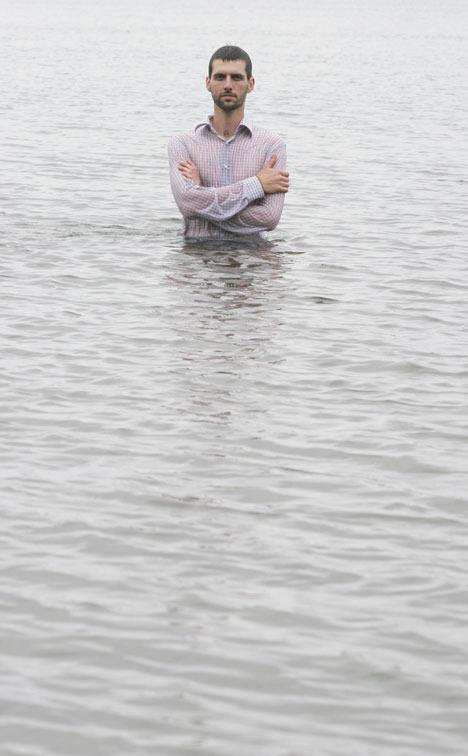A human line in the sand in Langley this weekend will mourn the oil spill in the Gulf of Mexico and spread the call for a new national energy policy.
The local link in an international chain of similar events labeled “Hands Across the Sand” will be Saturday, June 26, on the beach at Seawall Park off First Street.
“It’s a starting point for a long-term renewable-energy effort for America,” said Corey Graves of Langley, organizer of the local event.
“It’s about spending time together to empower each other and build some hope,” Graves said Monday.
The event is from 11 a.m. to 12:20 p.m. and will feature discussion, at least one speaker, sign-up sheets and a petition. Transition Whidbey members also will be on hand to talk about alternative energy sources.
At noon, participants will form a line on the beach and join hands for
15 minutes of silence.
“Then you’re free to go, leaving only your footprints in the sand,” Graves said. “It’s meant to be symbolic, something to strive for.”
Those taking part in similar vigils throughout the world will do the same at noon in their respective time zones, Graves said.
Speaking in Langley will be Jim Hyde, recent cofounder of the Whidbey Island chapter of Citizens Climate Lobby, a grassroots effort dedicated to reducing the use of carbon fuels.
“It’s a conscience sort of thing,” Hyde said of the generally frustrated reaction to the gulf situation. “They feel bad about the oil. We’ll try to offer some action they can take. An event like this can be healing.”
The spill in the Gulf started April 20 when a British Petroleum oil rig exploded. Eleven workers died in the blast and millions of gallons of oil have spewed into the ocean since, fouling fishing areas and threatening environmentally sensitive shorelines.
Graves said that while oil refineries in Puget Sound don’t pose the same threat to the environment as a drilling rig, there is still the potential for harm.
He said he will circulate a petition on Saturday to present to state and federal officials urging that stiffer regulations on oil operations include refineries, and that the effort be comprehensive and focused from the beginning.
“I don’t want a nine-month, drawn-out open wound of a process to occur,” Graves said. “I’m pretty worked up.”
Endorsed by environmental groups such as Greenpeace and 350.org, Hands Across the Sand got its start this past February in Florida.
Thousands of people representing 60 towns and cities and more than 90 beach-
es joined hands to protest efforts by the Florida Legislature and the U.S. Congress to lift the ban on offshore oil drilling.
It was the largest anti-drilling protest in the history of the state, organizers said. Since then, similar events have been held elsewhere in the U.S. and beyond, including demonstrations in the Dominican Republic, Haiti and Nigeria, Graves said.
The purpose of the protests is to focus attention on oil drilling’s environmental threat to coastal economies and marine habitats, and to convince state and federal officials to encourage the growth of clean energy and renewable industries, organizers say.
Graves, 30, a barista at Useless Bay Coffee Company in Langley, is a Skagit County native who has lived on South Whidbey for three years, during which he has been active in other civic affairs.
He said the only sure way to prevent environmental damage from oil spills is for the world to wean itself from carbon fuels. The future depends on it, he said.
And events such as Hands Across the Sand can help, Graves added.
“We need to keep people talking about it, to keep them involved,” he said.
“I’ve been talking to a lot of young people about this,” he continued. “I want their future to be one of hope and possibility.”
Meanwhile, Hyde pointed out that oil isn’t the only local concern; a third of the nation’s electrical energy comes from the burning of coal, including some of the power provided locally by Puget Sound Energy.
“We’re still wrapped up in our carbon-fuel addiction, and are susceptible to the bad things that can happen,” he said.
Hyde agreed with Graves that Saturday’s beach event in Langley can be therapeutic to those brooding about the spill in the Gulf of Mexico.
“It’s going to be fun and healing, and it will give us a new direction,” Hyde said.



